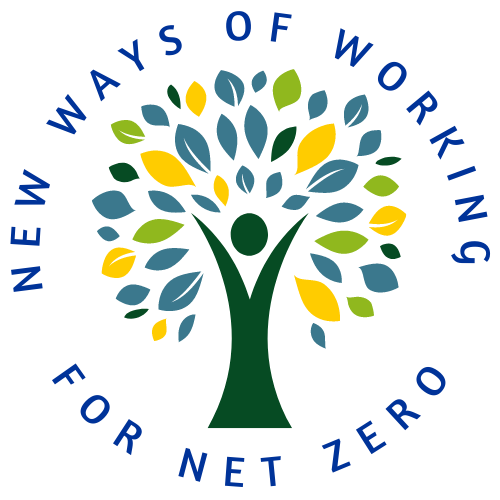DEJAN ZLATKOVSKI
Dejan Zlatkovski is a software engineer with 20 years of experience in Education and Training sector. He graduated Software Engineering at the Institute of Informatics in Skopje and specialized Public Policy Making in Education and Human Development at the George Washington University in Washington D.C.
Interview conducted on 25 August.2022
"If we are talking about the developed countries, then the impact of Green IT strategies could be significant. One potential area for improvement is using the Green IT approaches to educate and train companies staff to be more responsible in the use of the companies’ resources, keep their focus on optimization, excel in process thinking, and support them in designing greener products..."
The interview:
What is generally covered with Digital sustainability? In your opinion, can we make a distinction between a Green IT strategy and Digital sustainability of companies?
DEJAN ZLATKOVSKI:
In my view, the Green IT strategies should go beyond the impact focused only on energy efficiency and energy consumption. Green IT must support companies in their endeavour to produce more in less time with less resources. The term resources includes energy, raw materials, staff. In this regard, Green IT must contribute to optimization of the working processes and designing more effective products and services.
What is your opinion on the impact of Green IT strategies on the actual performance of companies? Are they related, and in what way are they related to well-being at work (teleworking, right to disconnect)?
DEJAN ZLATKOVSKI:
If we are talking about the developed countries, like North Macedonia, then the impact is significant. One potential area for improvement is using the Green IT approaches to educate and train companies staff to be more responsible in the use of the companies’ resources, keep their focus on optimization, excel in process thinking, and support them in designing greener products.
In terms of well-being of employees, remote working is definitely one way, if wisely planed, for the companies to optimize the usage of their resources, and consequently reduce the energy consumption and the space needed to accommodate their employees. From my personal experience, remote and hybrid mode of working helps in reducing commuting and provides more personal time. The weaknesses are mainly associated with the personal right to disconnect and I believe that this matter really needs more attention from the authorities; it is a subject for potential regulation.
Given the relevance of Green IT Strategies, how can companies be motivated for adopting and implementing Green IT actions?
DEJAN ZLATKOVSKI:
Companies can be motivated to develop and implement Green IT strategies through various means. Some of them are not a surprise:
- Cost savings: One of the most significant motivations for companies to adopt Green IT strategies is the potential cost savings. By reducing energy consumption, companies can save money on utility bills and reduce the cost of managing e-waste.
- Reputation and brand image: Implementing Green IT strategies can enhance a company's reputation and brand image as a socially responsible and environmentally conscious organization. This can increase customer loyalty and attract new customers who prioritize sustainability.
- Regulatory compliance: Many governments have implemented regulations and policies to promote environmental sustainability, such as carbon emissions reduction targets. Companies can be motivated to implement Green IT strategies to comply with these regulations and avoid penalties. Unfortunately, this is not the case with North Macedonia, but it is widespread in EU
- Employee engagement and retention: Green IT strategies can also be used as a tool to engage and retain employees who are environmentally conscious and value sustainability in their workplace. This is to some extant related to building the Brand of the company based on its values.
- Competitive advantage: Companies that implement Green IT strategies can gain a competitive advantage over their competitors by offering environmentally sustainable products and services.
- Innovation and research and development: Developing Green IT strategies can also lead to innovation and research and development opportunities, which can lead to new products, services, and business models.Top of Form
The key to all of these motivators is the education and information of all stakeholders, not only employees, the larger society too.
Are there any specific successful approaches as an example you can identify in North Macedonia for the same?
DEJAN ZLATKOVSKI:
International organization acting in North Macedonia as for example as is UNDP, are investing a lot to provide guidance, expertise and know-how support for the SMEs to perform digital transformation of their processes, services and products keeping in mind also the green transition. There are various incentive to support employment in green jobs and therefore training for green skills became very attractive recently (please check Future Skills Centre skills4future.mk). There are excellent examples for companies that are working on recycling the textile waste, recycling the waste from the agriculture and food industry, production of bio-gas, etc. All these are results of specific and targeted campaigns to motivate and support the companies.
In your view, are HR Managers or HR practitioners important for successfully implementing GreenIT strategies in companies? Where do your see the significance of their role?
DEJAN ZLATKOVSKI:
Yes. HR main focus should be on training and professional development and hiring people with “greening” in their vision and skills. In general, Human resources (HR) plays a crucial role in implementing green IT strategies within an organization. HR can take the following actions to support green IT initiatives:
- Education and training: HR can educate employees on the importance of green IT strategies and train them to adopt practices that reduce the organization's carbon footprint.
- Recruitment and hiring: HR can incorporate environmental sustainability as a requirement in the job description for IT positions. This ensures that potential candidates have an understanding of green IT strategies and their role in promoting sustainable practices.
However, I think we should not forget also:
- Performance management: HR can include environmental sustainability metrics in employee performance evaluations to encourage employees to incorporate green IT strategies into their work practices.
- Employee engagement: HR can encourage employee engagement in green IT initiatives, such as setting up a green IT committee or holding awareness-raising events.
- Collaboration: HR can collaborate with IT departments to ensure that green IT strategies are incorporated into the organization's technology infrastructure and systems.
How can HR Managers increase their influence on developing and implementing the GreenIT strategies in companies? What HR practices you can identify as an IT expert which would be important to implement to support the digital experts in designing and implementing successful GreenIT?
DEJAN ZLATKOVSKI:
HR managers can work closely with IT experts to ensure that employees are aware of Green IT practices and trained to implement them. HR managers must regularly follow the impact of the new technologies and especially on those that are marked as disturbing technologies. HR manager must keep an eye on what is going on in the R&D centres and what are the predictions for the future HR managers could have significant impact in some industries, such as construction which is one of the biggest pollution generators. Hiring and training engineers and architects with a vision and knowledge could be decisive for the green transition of this sector. However, we already spoke about it in the previous questions. In general I believe HR Managers can increase their influence on developing and implementing the GreenIT strategies in companies by:
- Build relationships with key stakeholders: HR managers can build relationships with key stakeholders, such as IT managers and sustainability officers, to collaborate and align efforts towards Green IT initiatives.
- Provide Green IT training: HR managers can provide Green IT training to employees and ensure that they are aware of the importance of Green IT strategies and how to implement them.
- Incorporate Green IT into hiring and performance evaluations: HR managers can incorporate Green IT into job descriptions and performance evaluations to encourage employees to adopt Green IT practices.
One very good idea is to establish a Green IT committee: HR managers can establish a Green IT committee to bring together employees from different departments to collaborate and share ideas for implementing Green IT strategies.








